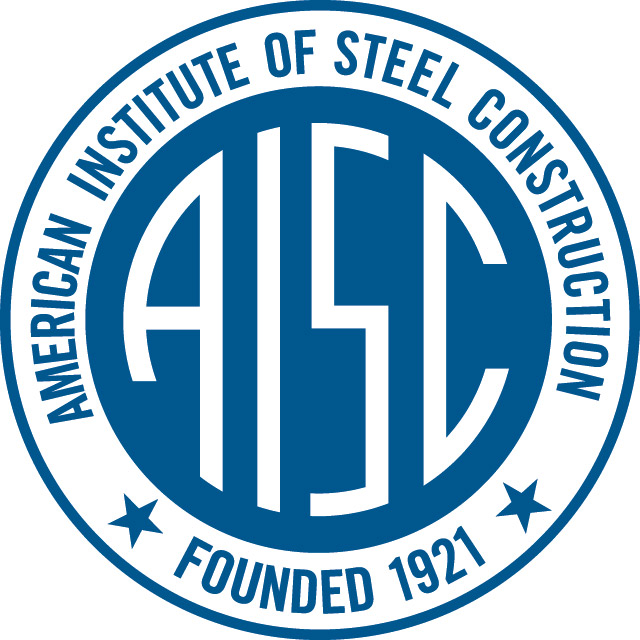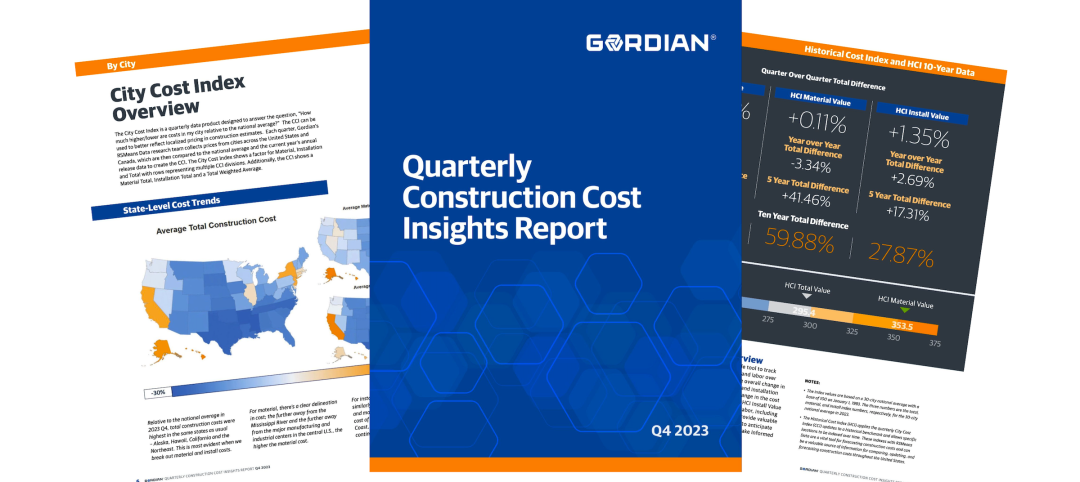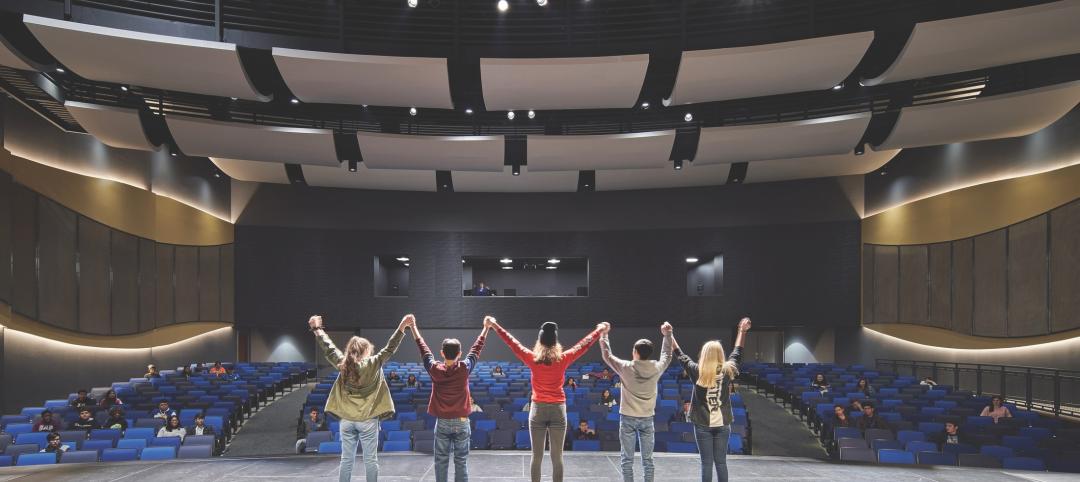For the second consecutive year, NASCC: The Steel Conference provides a glimpse into the future of technology in steel construction with the Technology in Steel Construction Conference (TSCC). This special track features nine informative sessions that focus on advanced technology use throughout the steel construction industry, from various topics on building information modeling (BIM) to interoperability.
TSCC sessions are part of the more than 100 top-notch educational sessions being offered at The Steel Conference in St. Louis, April 17-19 at America's Center Convention Complex. Admittance to all TSCC sessions is included with conference registration. To register or view an advance program, visit www.aisc.org/nascc.
Here's a look at this year's TSCC sessions for steel design and construction professionals:
T1: Leveraging Technology to Improve Project Communication (Wednesday, 3:15 p.m. — 4:15 p.m.) — How do you convey information clearly and succinctly and ensure it is understood by others? How do you know you are interpreting the information you receive correctly? This session, aimed at all roles within the structural steel industry, will discuss how to use the technology you already have, or have easily accessible, to improve communication within the project team and your own organization. Various technologies will be examined, from tools for building and reviewing BIM models and drawings, to web-based software designed to accommodate virtual meetings, to free tools to help you share files and stay mobile.
T2: IFC - Interoperability for Construction? A Practical Take for the Steel Industry (Wednesday, 4:30 p.m. — 6 p.m.) — IFC does not stand for Interoperability for Construction; but it could! It's actually an acronym for buildingSMART's Industry Foundation Classes, an industry-wide open standard that is gaining traction in the construction industry, as it offers a promise unmatched by previous standards: that a single standard can be used across various trades and professions in the industry. This session will explain why AISC adopted IFC at the core of its interoperability strategy and examine the nuances of IFC files, dispelling some myths and perceptions along the way. In addition, the session will take a look at the progress being made toward actual IFC exchanges in the structural steel industry.
T3: Risk and Model Hand-Offs (Thursday, 8 a.m. — 9:30 a.m.) — In this session, you'll learn how to address risk and model hand-offs and the challenges of working with design and construction models. The discussion will also consider the new AIA BIM Protocol Exhibit 202 that defines the Level of Detail (LOD) in models on a scale of 100 to 500. These LOD concepts will then be demonstrated with case studies on projects in three different phases: design, construction and facilities management (FM).
T4: Next Generation Approval: Using BIM for the Shop Drawing Review and Approval Process (Thursday, 10 a.m. — 11:30 a.m.) — BIM models hold tremendous potential, yet they are often underused beyond the visualization and coordination stages. This session will introduce you to three pioneering companies that are taking models to the next level by using them in the review process in concert with, or even in lieu of, traditional shop drawings. Speakers will discuss various methodologies and benefits they've experienced using model review.
T5: Bridging the Gap from Design to Fabrication (Thursday, 1:15 p.m. — 2:15 p.m.) — Do you still use traditional PDF drawings? You may be running the risk of inefficiencies and opportunities for mistakes. In the new and evolving world of BIM, more designers are creating 3D models that contain an immense amount of information that can be easily accessed by steel detailers, who have the opportunity to incorporate lean processes in their workflow -- benefiting the bottom line for the entire project team. In this session, you'll hear about the steel detailing challenges, successes and lessons learned from a major healthcare project related to the structural design model and project team coordination, and how to apply these to your own projects.
T6: The True Benefit of BIM for the Structural Engineer and the Pivotal Role They Play in the BIM Process (Thursday, 3 p.m. — 4 p.m.) — Do you typically use software packages for your own domain and find that it can sometimes be a bottleneck in the BIM process? Structural engineers and designers will often use their own BIM models for design, but, for most projects, the construction documents will be produced as drawings for the steel detailer/fabricator, who then interprets the drawings for building their own BIM models for fabrication purposes. This session will examine and discuss various topics related to improving workflow both within the structural engineering office and as it pertains to sharing models with steel detailers.
T7: What Does it Mean to Be a BIM Coordinator? (Thursday, 4:15 p.m. — 5:15 p.m.) — This session will delve into the role and requirements of a 3D/4D BIM coordinator and provide objectives from the perspectives of a steel detailer and general contractor. The purposes and goals of a BIM Contract will be reviewed, as well as the expectations of each project stakeholder. The session will also examine the different BIM platforms each party uses and the benefits of identifying discrepancies earlier in the design and detailing process.
T8: Steel Procurement in the 21st Century: Current Best Practices and Future Possibilities (Friday, 8 a.m. — 9:30 a.m.) — In today's brave new technological world, paper, faxes and basic spreadsheets still dominate the world of steel procurement. This session will offer practical ways to take advantage of the technology you already own, or have easily accessible, to improve the procurement process, which will be investigated in four primary areas: Inventory availability; Request for Quotation (RFQ); order placement; and order status/delivery. It will also discuss promising future initiatives and opportunities in this area.
T9: Laser Scanning and Steel Construction (Friday, 10 a.m. — 11:30 a.m.) — In this session you'll gain a solid foundation in using laser scanning for your projects, including how to budget and specify laser scanning work. The presentation will also provide practical examples of how laser scanning is adding value, accelerating schedules, and improving quality and safety for steel projects.
More information on this year's TSCC sessions at The Steel Conference can be found in the Advance Program (pages 29-31). For more information about the conference, visit www.aisc.org/nascc.
About the American Institute of Steel Construction
The American Institute of Steel Construction, headquartered in Chicago, is a not-for-profit technical institute and trade association established in 1921 to serve the structural steel design community and construction industry. AISC's mission is to make structural steel the material of choice by being the leader in structural steel-related technical and market-building activities, including: specification and code development, research, education, technical assistance, quality certification, standardization, and market development. AISC has a long tradition of service to the steel construction industry of providing timely and reliable information.
Related Stories
Giants 400 | Jan 22, 2024
Top 40 Outpatient Facility Engineering Firms for 2023
Jacobs, IMEG, TLC Engineering Solutions, KPFF Consulting Engineers, and Syska Hennessy Group head BD+C's ranking of the nation's largest outpatient facility engineering and engineering/architecture (EA) firms for 2023, as reported in the 2023 Giants 400 Report. Note: This ranking includes design revenue for work related to outpatient medical buildings, including cancer centers, heart centers, urgent care facilities, and other medical centers.
Construction Costs | Jan 22, 2024
Construction material prices continue to normalize despite ongoing challenges
Gordian’s most recent Quarterly Construction Cost Insights Report for Q4 2023 describes an industry still attempting to recover from the impact of COVID. This was complicated by inflation, weather, and geopolitical factors that resulted in widespread pricing adjustments throughout the construction materials industries.
Transit Facilities | Jan 22, 2024
Top 40 Transit Facility Engineering Firms for 2023
AECOM, Jacobs, EXP, WSP, and Arup head BD+C's ranking of the nation's largest transit facility engineering and engineering/architecture (EA) firms for 2023, as reported in the 2023 Giants 400 Report. Note: This ranking includes design revenue for work related to bus terminals, rail terminals, and transit stations.
Hotel Facilities | Jan 22, 2024
U.S. hotel construction is booming, with a record-high 5,964 projects in the pipeline
The hotel construction pipeline hit record project counts at Q4, with the addition of 260 projects and 21,287 rooms over last quarter, according to Lodging Econometrics.
Modular Building | Jan 19, 2024
Virginia is first state to adopt ICC/MBI offsite construction standards
Virginia recently became the first state to adopt International Code Council/Modular Building Institute off-site construction standards.
Office Buildings | Jan 19, 2024
How to strengthen office design as employees return to work
Adam James, AIA, Senior Architect, Design Collaborative, shares office design tips for the increasingly dynamic workplace.
Modular Building | Jan 19, 2024
Building with shipping containers not as eco-friendly as it seems
With millions of shipping containers lying empty at ports around the world, it may seem like repurposing them to construct buildings would be a clear environmental winner. The reality of building with shipping containers is complicated, though, and in many cases isn’t a net-positive for the environment, critics charge, according to a report by NPR's Chloe Veltman.
Engineers | Jan 18, 2024
Walter P Moore promotes former 40 Under 40 winner Kelly Roberts
In addition to her role as a Principal, Roberts is a distinguished leader in structural design with an extensive portfolio encompassing diverse projects such as educational and healthcare facilities to commercial and healthcare structures.
Sponsored | BD+C University Course | Jan 17, 2024
Waterproofing deep foundations for new construction
This continuing education course, by Walter P Moore's Amos Chan, P.E., BECxP, CxA+BE, covers design considerations for below-grade waterproofing for new construction, the types of below-grade systems available, and specific concerns associated with waterproofing deep foundations.
Sponsored | Performing Arts Centers | Jan 17, 2024
Performance-based facilities for performing arts boost the bottom line
A look at design trends for “budget-wise” performing arts facilities reveals ways in which well-planned and well-built facilities help performers and audiences get the most out of the arts. This continuing education course is worth 1.0 AIA learning unit.
















